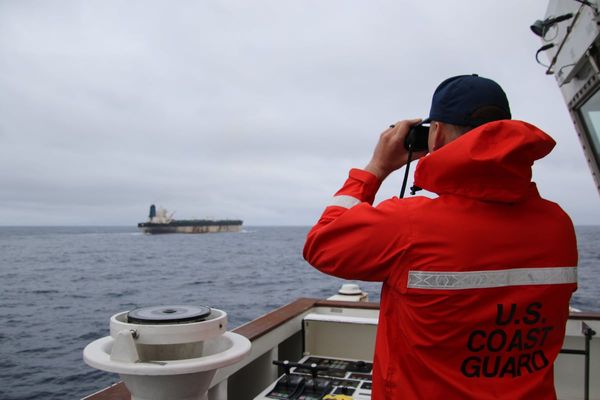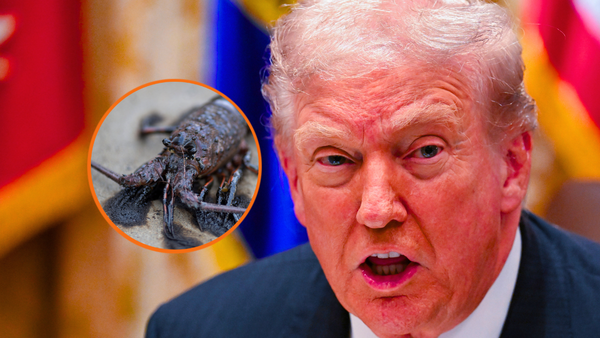
Labor has confirmed the climate impact of fossil fuel projects still won’t be considered before they are approved under a revamp of federal nature laws, with the Greens labelling the government’s plan “worse than the status quo”.
The Greens, opposition and select environment and business groups have been briefed on parts of the long-awaited rewrite of the Environment Protection and Biodiversity Conservation (EPBC) Act ahead of its introduction to parliament in the upcoming sitting fortnight.
Environment minister Murray Watt’s hopes of passing the laws this year hinge on reaching a quick deal with either the Coalition or the Greens, neither of which are yet on board.
After months of consultation, the private briefings on Wednesday confirmed how Labor intends to deal with some of the most contentious elements, including climate impact.
As Watt had forecast, the laws will create a new requirement for proponents of high-polluting projects to disclose their expected greenhouse gas emissions, along with a plan to mitigate them, as part of the application process.
The new rule – which would apply to projects with predicted emissions above 100,000 tonnes of CO2 equivalent each year – was a recommendation from Graeme Samuel’s review of the EPBC Act.
Sign up: AU Breaking News email
“By ensuring projects disclose their emissions, for the first time the public will know exactly what to expect from new projects and how they are accounting for our key climate policies, like the safeguard mechanism,” Watt said.
The proposed new reporting rules fall short of the sort of mechanism the Greens and environmental groups have long called for, which would require decision-makers to consider climate impacts when assessing applications.
“The minister or the EPA needs the powers to assess those emissions and, in the right circumstances, reject a project if the emissions are going to have an impact on our threatened species, for example, or on the Great Barrier Reef,” Glenn Walker, the head of nature at Greenpeace Australia Pacific, said.
The legislation will also create a new definition for what constitutes an “unacceptable impact” on the environment, which, if, met would result in a project being immediately refused.
Industry sources briefed on the definition said it was too broad, creating an “inexhaustible level of uncertainty”.
Stakeholders were not shown the entire bill and contentious elements are yet to be finalised, including the scope of the proposed environment protection agency (EPA).
The EPA’s powers have been the main sticking point for the Coalition, which want the watchdog’s role restricted to compliance and enforcement of nature laws and the minister to retain decision-making powers on projects.
While the shadow environment minister, Angie Bell, was confident Labor had agreed to that model, Guardian Australia has confirmed with Watt’s office that no decision has been made.
Bell, who has been positive about her negotiations with Watt so far, said the opposition would await the full draft legislation before agreeing a position because “we know the devil is in the detail”.
The Greens – Watt’s other possible partner in the Senate – issued a statement condemning Labor’s plan after a briefing on Wednesday morning.
“This bill has been drafted with the interests of mining industry front and centre. It weakens environmental protection. It will take us backwards and is worse than the status quo,” the Greens environment spokesperson, Sarah Hanson-Young, said.
The legislation will include a provision that requires developers to achieve a “net gain” for the environment, which could be through the use of offsets.
At a virtual meeting with grassroots Labor members on Tuesday night, Watt said developers would also be able to contribute to a “restoration fund” that the government would use to purchase offsets.
The Biodiversity Council’s chief executive, James Trezise, said the proposed fund had “serious design flaws that could leave nature worse off”, in part because the government planned to relax “like-for-like” rules that required developers to protect the same sort of environment it had damaged.
Watt used the virtual meeting to encourage Labor supporters to challenge Greens and environmentalists who claimed the laws were “no good for the environment”.
“So when you’re seeing Greens or environment groups peddling this line that we’re going backwards on the environment under Labor, and under these laws, it’s completely untrue, and we need to set the record straight.”
In a statement to Guardian Australia on Tuesday, Watt said: “No one will get everything they want.”
“Everyone agrees that these laws are failing the environment and business – that’s why we are determined to get this legislation through the parliament,” he said.
“I have always said that stakeholders would need to be willing to compromise in order to get these vital laws passed.”







